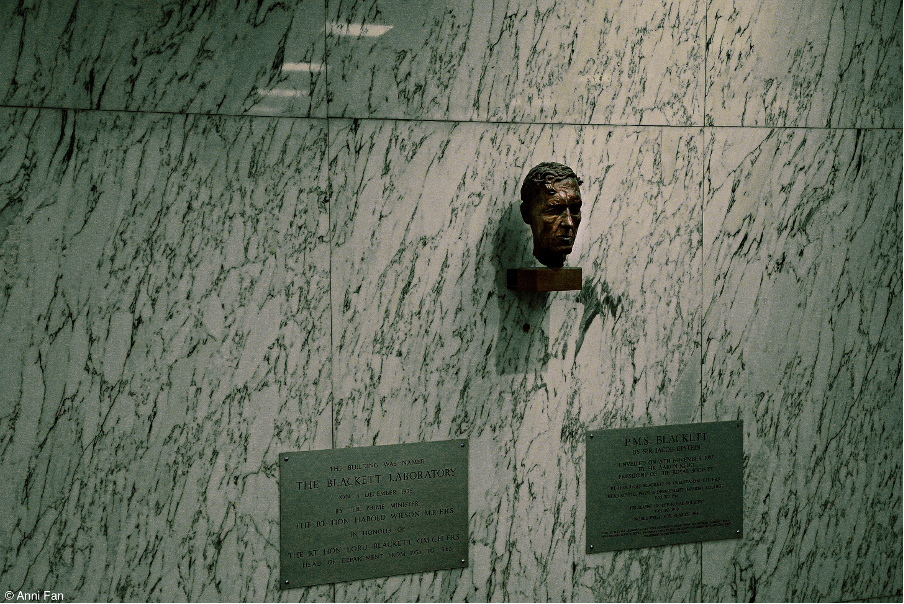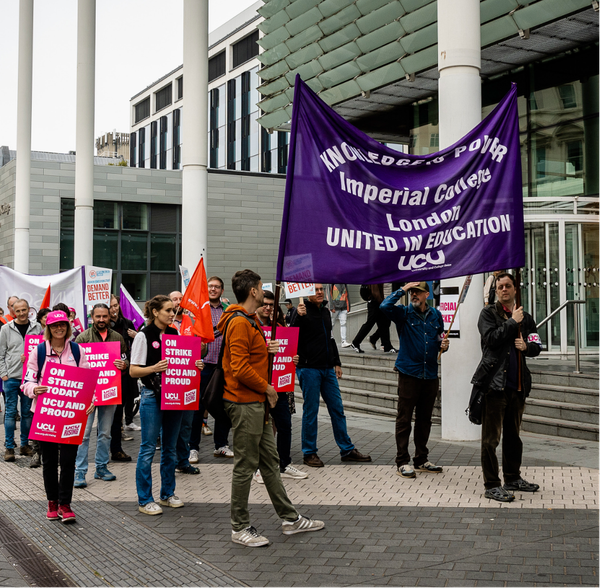“A slap in the face”: Physics students dismayed at MAB complaint outcome
Deputy Head of Department Contaldi, frustrated at “confrontational” student response, offers to step down

Imperial this week released the results of an investigation into a complaint submitted by Physics undergraduates about their department’s response to industrial action.
Students expressed their dissatisfaction with the outcome, after the investigator only partially upheld the complaint. Their demands for a partial refund of tuition fees were rejected, but the investigator found that the department’s ‘communication with the student body could have been improved.’
Students are especially upset by the report’s comments on the emotional impact of the department’s response.
‘It was not unexpected that the situation would change from time to time so that information provided by the Department sometimes had to be corrected and updated,’ wrote investigator Professor Richard Thompson – himself a member of the Physics department. “I do not believe that these corrections were significant enough to cause distress.”
“Being told, ‘That’s not stress inducing,’ is a bit of a slap in the face,” said one student. “The report does not acknowledge the emotional and mental impact of the department’s communication failures to the students.”
“The reps spent multiple full days trying to reassure people, who were told different things by staff members, compared to what was then communicated to the student body as a whole.”
“Many people didn’t – and still don’t – know what their results [from last academic year] are, as we are still missing marks from two of the four core modules this year,” they continued. “It’s frankly a disgrace the way the whole situation has been handled.”
The students’ complaint raises two main concerns: the Physics department’s response to the Marking and Assessment Boycott (MAB), and its response to missed lectures.
During the MAB, boycotting staff ceased all summative marking and associated assessment duties. As a consequence, the Physics department, which had a disproportionately high number of boycotters, was unable to fully mark examinations for many first- and second-year modules.
‘Since staff undertaking the MAB are not required to inform the College until their marking is due, the Department had very limited knowledge of how severe the impact would be until very close to the date of the examiners’ meetings,’ says the report on the students’ complaint.
“Being told, ‘That’s not stress inducing,’ is a bit of a slap in the face,” said one student. “The report does not acknowledge the emotional and mental impact of the department’s communication failures to the students.”
However, it acknowledges that ‘students could have been informed about the developing situation and the department’s plans, and could have been more actively involved in formulating those plans.’ It recommends that the department should ‘involve students in decisions about what actions to take’ and should ‘keep the whole cohort informed in a timely manner’.
It also recommends that ‘the Department should be as flexible as possible with regard to resit examinations.’ In mid-July some modules had been marked entirely, and some only partially, as a result of the MAB. Students were therefore given provisional passes on the basis of the fully-marked modules, and told they would have to resit the MAB-affected modules, if it emerged at a later date that they had failed. Students were given the chance to resit in August 2023 – before they knew whether they had passed or failed, or alternatively, to resit the exam at the end of the 2023/24 academic year.
The report recommends a change in policy here: ‘If a student now finds that they will have to take a resit in summer 2023 for a module they failed at the first attempt, the Department should allow them to defer it to the August/September resit period if requested.’
The original complaint noted that students had lost one in every 10 hours of lectures to strikes. ‘We are still not receiving the education promised by the university’, wrote the complainants, arguing that the missed content would hurt their career prospects.
The report acknowledges that around 9% of lectures in the 2022/23 year were missed, but says that only 2% of the content was fully undelivered, with the remainder delivered via lecture notes. This finding has been received poorly by the complainants.
“I am surprised that the department considers lecture notes an acceptable substitute for teaching,” said the head complainant. “The implication by the department is that we could learn their course using a PDF - which is not the standard of teaching I expect from a supposedly world-class institution such as Imperial.”
Others concurred: “It feels that the department willfully ignored a key part of the complaint,” said a student representative, who wished to remain anonymous. “Handing us lecture notes on the final day of the course without problem sheets, tutorials, or seminars does not count as teaching us the content. The department seems unwilling to acknowledge that the way they handled teaching over the strikes was inadequate and seems to care more about seeming to have done a good job than about actually doing a good job.”
The complainants say they will appeal the outcome of the report to the College Secretariat. Meanwhile, undergraduate physicists say they are struggling to keep up with new content this year, as a result of missed content last year. Many are worried about their Comprehensives, exams that cover all content in the first and second years of the course.
Carlo Contaldi, the Deputy Head of Department (Education) told Felix that he was disappointed with the “confrontational tone and language adopted” in discussions suggesting that students’ complaints amounted to a demand for “strike-breaking and asking students to challenge picket lines”, despite the student body’s claim to support the striking lecturers and their goals. He criticised the students’ “continuous criticism” calling it “distracting” and said that if students feel that they do not have confidence in him, they should inform the Head of Department and he would step down immediately.
Additional reporting by Jamie John.








